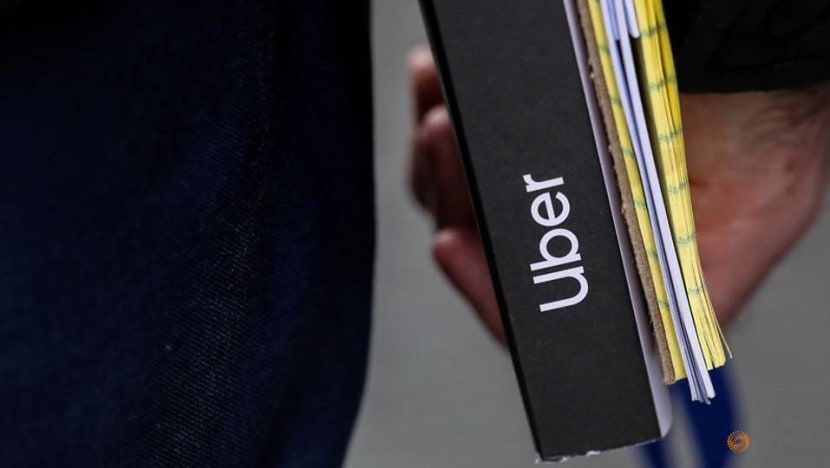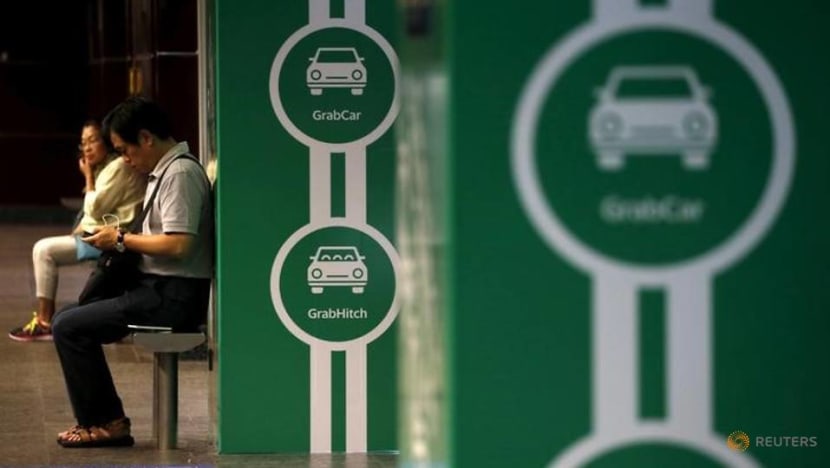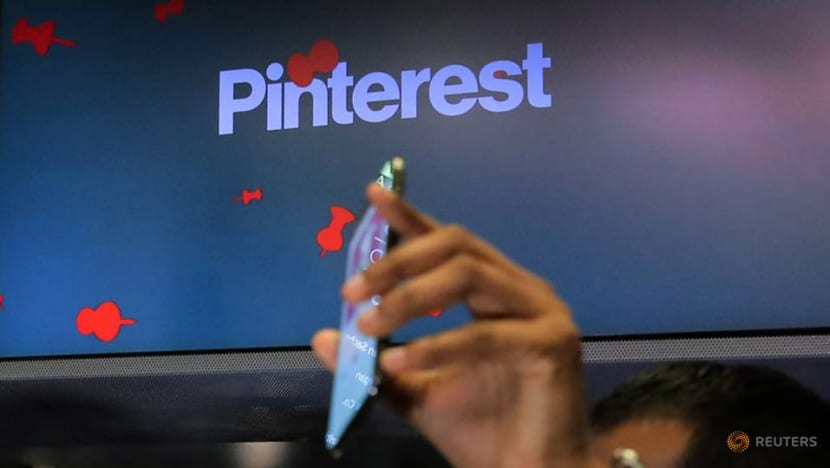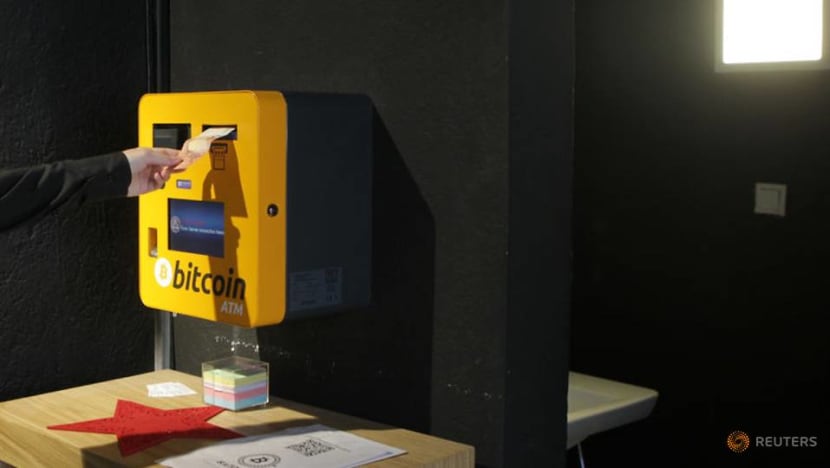commentary Commentary
Commentary: Game of unicorns – as more seek IPOs, is this tech bubble about to burst?
All eyes are now on the Uber and WeWork IPOs which saw their companies valued in the amazing range of US$100 billion and US$50 billion respectively, says NUS Business School’s Lawrence Loh.

FILE PHOTO: An investor walks out of the Uber IPO roadshow with documents in hand at a hotel in Manhattan, New York, New York, US, April 30, 2019. (Photo: REUTERS/Jeenah Moon/File Photo)
SINGAPORE: 2019 has been touted as the Year of Start-up IPOs. Big-name start-up companies are now making spectacular initial public offerings (IPOs) like we have not seen before.
All eyes are now on the Uber and WeWork IPOs which saw their companies valued in the amazing range of US$100 billion and US$50 billion respectively.
CRAZY RICH ‘CORNS
For this year alone, start-up mega-IPOs range from platform giants like Pinterest to plant-based meat alternative producer Beyond Meat.
Pinterest, offered in April, shot up a formidable 28 per cent on the first day of trade on the New York Stock Exchange (NYSE) alone while Beyond Meat rose a whopping 163 per cent when it debuted on the Nasdaq exchange just this month – the biggest IPO since the 2008 global financial crisis.

READ: Three stories show Uber’s IPO rests on overworked drivers and a lot of waiting, a commentary
Beyond Meat belongs to a special breed of private start-ups called unicorns that are valued, before IPO, at more than US$1 billion. Its valuation is said to surpass US$4 billion, worth more than all the peas in America.
Pinterest is a rarer breed of decacorns valued at more than US$10 billion. It went IPO with a valuation of nearly US$13 billion - not bad for a company that is essentially selling digital scrapbooks.
On a global basis, there are 345 unicorns as of May 7 with a total cumulative valuation of US$1.2 trillion, as compiled by tech market intelligence firm CB Insights. These are concentrated mostly in two countries – US (171 unicorns) and China (89 unicorns). Out of these, 18 have reached decacorn statuses.
In Asia outside of China, there are three decacorns – Grab (Singapore), Paytm (India) and Go-Jek (Indonesia).
READ: Go-Jek and Grab’s two competing visions are knocking heads in Asia, a commentary
There is even a said hectocorn that has a valuation surpassing US$100 billion – China’s Ant Financial valued at US$150 billion. The company is reportedly preparing for IPO as China’s Nasdaq-style equity board in Shanghai prepares to be launched.
IPOS: ENDGAME
The motivation for start-ups to go IPO is strong. Beyond better branding, there is broader and deeper access to new capital. The equity base can also be more diversified beyond private investors.

For a start-up which has only perceived worth, an IPO is an objective market test for its true valuation. This is particularly crucial for start-ups burning through cash intensely without a sign of profits on the horizon.
The public trading will validate its business model and potential, although it also runs the risk of going sideways if the market rejects the start-up’s value proposition.
According to the inaugural Unicorn IPO Report released this March by Harvard Law School, the numbers of unicorns that listed on NYSE and Nasdaq over the last three years have been on the uptick: Five in 2016, 13 in 2017 and 20 in 2018. Going IPO is a valid exit strategy for many founders and investors, especially to cash out. It may be a natural stage in the life cycle of a start-up.
Notably, over 100 tech unicorns are estimated to list in 2019, according to UBS.
READ: The curious case of slick start-ups that tout billion-dollar valuations then rapidly collapse, a commentary
The baffling puzzle is that these high-profile start-up IPOs are taking place against a broader backdrop of declining IPOs. The Big-Four accounting firm, EY, reported a 41 per cent decrease in global IPO deals and 74 per cent decrease in their proceeds for the first quarter of 2019 compared to those last year.
In fact, for 2018, the number of IPOs dropped 21 per cent year-on-year while proceeds actually went up by 6 per cent due to unicorns getting listed.
So what exactly is happening with all these species of “corns” listing – unicorns, decacorns and even hectocorns? Might they be offloading dud companies to the public markets, benefiting the incumbent investors at the expense of new investors, many of whom may be small-time retail stock buyers?
Looking at the equity markets in perspective, stock prices have languished for almost one-and-a-half years before the turn of 2019. These have picked up in recent few months. In fact, we are seeing all-time highs both on the broad-based S&P 500 index and the tech-focused Nasdaq Composite index.

However, general IPOs have not moved in tandem with the stock market particularly in the first few months of this year. This is strange as IPOs usually take strong cues from the market’s overall share indexes.
GAMES OF CORNS
It looks like the high-valuation start-ups may be selling out before they get filtered out. And there has never been a better timing to ride the crest than now when stock markets are up.
On the one hand, these developments combined may seem like we are approaching a deja vu repeat of the dotcom bubble of the late 1990s when the Nasdaq Composite rose more than five-fold from 1995 to 2000 and then fell heavily in two years to almost where it was. That was a most spectacular burst.
But unlike the dotcom episode, the current start-up IPO frenzy is seeing valuations reaching astronomical heights even before companies reach the stock markets. And with astonishing herd instinct, stock buyers are simply joining the bandwagons.
Are our memories that short? It was only last year that the cryptocurrency bubble burst. Early investors, including founders, cashed out. The losers were left holding on for dear life.
READ: Of course we shouldn’t be surprised by this year’s cryptocurrency price bust, a commentary
It remains to be seen when the mega-IPO music will stop. The Greater Fool Theory predicts however that there is always someone else who will buy at a higher price.
What might get this house of cards come crashing down is an economic calamity like a recession and the game then has to end. The last one carrying the stock will be the most severely punished.

Recently we have seen “inverted yield curves” where long-term Treasury yields fell below short-term yields. This phenomenon is usually a harbinger for a coming recession although it is only a necessary but not sufficient condition.
There are mixed views whether a recession is imminent even if the most recent US job growth and employment data are still favourable. The US Federal Reserve has been raising rates since late 2015 to counter growth and inflation. But it has halted raising interest rates given global uncertainties.
We may be on the cusp of a financial crisis if the string of big-time valuation-hyped IPOs cannot sustain themselves. While this may not be on a scale as vast as the dotcom crash, what is worrying is the potential contagion effect. And if many investors incurred debts for their holdings, they run the risk of not being able to service their borrowings.
This is similar to what happened during the Global Financial Crisis when sub-prime borrowers massively defaulted on their debts.
READ: Are we ready for the next major financial crisis? A commentary
Start-ups have to make money. Venture capitalists are not philanthropists.
High-valuation IPOs are exciting. But they are like popsicle bubble blowers. The popsicles are colourful and fun but the bubbles cannot stay forever big. And if they grow beyond a sustainable rate, they may burst at the slightest prick.
Lawrence Loh is director of Centre for Governance, Institutions and Organisations at NUS Business School. He is also associate professor of strategy and policy at the school.















